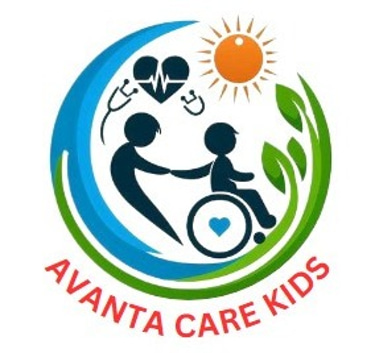Recognizing Early Warning Signs of Developmental Delays in Children
At Avanta Kids, we believe that early awareness is the best form of care. By educating parents on these important signs, we ensure children get the right help at the right time — laying the foundation for a healthier, brighter future.
8/29/20254 min read


Understanding Developmental Milestones
Developmental milestones are specific skills or behaviors that children typically exhibit at certain ages as they grow. These milestones can be categorized into four main domains: cognitive, social-emotional, language, and motor skills. Tracking these milestones is essential for parents and caregivers to assess their child’s development and identify any potential developmental delays early on.
In the cognitive domain, infants around 6 months begin to show signs of curiosity and explore their surroundings. By 12 months, most children can follow simple directions and recognize familiar objects. As they reach the preschool years, typically around age 4, children can engage in more complex cognitive tasks, such as problem-solving and understanding concepts of time.
The social-emotional domain demonstrates how children learn to interact with others and manage emotions. Around 2 months, infants typically start to smile at caregivers, which is a foundational social skill. By 3 years, children often engage in parallel play with peers and begin displaying empathy. By age 5, cooperative play and understanding the feelings of others become prominent.
Language development includes the ability to communicate and understand spoken words. Most babies say their first words around 12 months, and by 24 months, vocabulary increases significantly. By the time children reach preschool age, generally around 4 years, they can typically form sentences, ask questions, and hold simple conversations.
Motor skills encompass both gross and fine motor abilities. Infants usually start to grasp objects by 4 months and may begin to crawl around 9 months. By age 2, toddlers can run and kick a ball, while by age 4, they can hop on one foot and use scissors. Recognizing these milestones and understanding their significance helps parents monitor their child’s growth and seek professional guidance if necessary.
Key Warning Signs of Developmental Delays
Recognizing early warning signs of developmental delays is crucial for ensuring that children receive the support they need at the right time. Various domains of development, including communication, social interaction, motor skills, and cognitive abilities, present distinct indicators that caregivers should observe closely.
In the area of communication, a limited vocabulary is often one of the first signs suggestive of potential developmental delays. Children who exhibit difficulty in articulating their thoughts, using fewer words than their peers, or who do not engage in back-and-forth conversation may be experiencing challenges in this domain. Furthermore, the absence of gestures, such as pointing or waving, can add to the concern, as these non-verbal cues are essential components of early communication development.
Social interaction represents another critical domain where warning signs may emerge. For instance, a lack of eye contact during interactions is a significant indicator that a child may be struggling with social engagement. Similarly, difficulty in taking turns during play or refusing to join group activities can highlight potential issues. Children who appear aloof or uninterested in social dynamics may also be exhibiting signs that warrant further observation.
Motor skills are vital for a child's independence and daily functioning. Delays such as crawling or walking later than their peers can be red flags. Observing the child's ability to hold objects, demonstrate coordination, or engage in basic physical activities is also essential. A child who finds it challenging to grasp toys or who seems clumsy in movement may require a closer evaluation.
Cognitive abilities are integral to a child’s learning process; therefore, difficulty following simple instructions can suggest developmental delays. If a child struggles to understand straightforward tasks, such as “come here” or “put that down,” it is important to pay heed to these signs and seek guidance. By being vigilant and recognizing these early indicators, parents can play a proactive role in supporting their child's development.
The Importance of Early Detection and Intervention
Detecting developmental delays in children at an early stage is critical for ensuring optimal long-term outcomes. Research shows that the first five years of life are paramount for brain development, a period characterized by neuroplasticity—the brain's remarkable ability to adapt and reorganize itself. During this phase, children are particularly receptive to learning experiences, making early intervention an essential strategy in mitigating potential developmental challenges.
Recognizing developmental delays as soon as possible allows for timely interventions, which can profoundly impact a child’s future. Various studies underline how early therapies and educational programs tailored to the child's specific needs can enhance cognitive, communication, and social skills. These initiatives are not merely beneficial but can transform trajectories, fostering improved academic performance and better social integration into peer groups. When children receive the support they require early on, they are more likely to achieve developmental milestones in line with their peers, thereby enhancing their overall quality of life.
Moreover, the emotional and social aspects of early detection cannot be overlooked. When caregivers and educators identify delays promptly, it opens doors for supportive environments that cultivate confidence and resilience in children. As they engage in targeted activities and receive encouragement, these children develop stronger social skills, enabling them to form positive relationships with their peers. This enhanced self-esteem also allows for greater participation in social interactions, ultimately contributing to a more fulfilling childhood experience.
In conclusion, early detection and intervention play a vital role in addressing developmental delays. By leveraging the critical periods of brain development and implementing appropriate strategies, children can achieve significant improvements in their growth and development, paving the way for a brighter future.
Steps for Parents to Take
Recognizing the early warning signs of developmental delays in children can be concerning for parents. However, proactive steps can significantly aid in addressing these challenges effectively. First and foremost, open communication with the child’s pediatrician is essential. Parents should feel empowered to discuss their concerns candidly, outlining specific behaviors or milestones they believe may indicate a delay. Documentation of these observations can prove beneficial during consultations.
Seeking evaluations and assessments is a critical next step. Pediatricians may refer parents to specialists, such as developmental psychologists or speech therapists. These professionals can conduct comprehensive evaluations to identify any existing delays and formulate appropriate intervention strategies. Early assessment is crucial, as it allows for timely support that can significantly benefit the child’s development trajectory. Parents are encouraged to inquire about available resources within their community from the pediatrician or local health services.
Moreover, various support resources exist, including early intervention programs, which offer tailored strategies and services to help children meet developmental milestones. Parents should explore programs that provide services in the home, allowing children to learn in a familiar environment. Effective family support is paramount; relatives and caregivers can contribute significantly by being involved in the child's developmental journey. Establishing a nurturing and stimulating home environment, where caregivers actively engage in developmental activities, can reinforce skills learned during therapy sessions.
Additionally, employing strategies such as reading together, participating in play that promotes learning, and providing consistent routines can substantively foster the child’s development. Ultimately, collaboration with health professionals, combined with supportive family involvement, can significantly inspire positive developmental outcomes, ensuring children reach their fullest potential.
Contacts
844-228-4441
info@avanta.care
Subscribe to our newsletter
Servicing
All of Georgia
All of Florida
All of Maine
All of South Carolina
All of Vermont.
